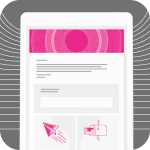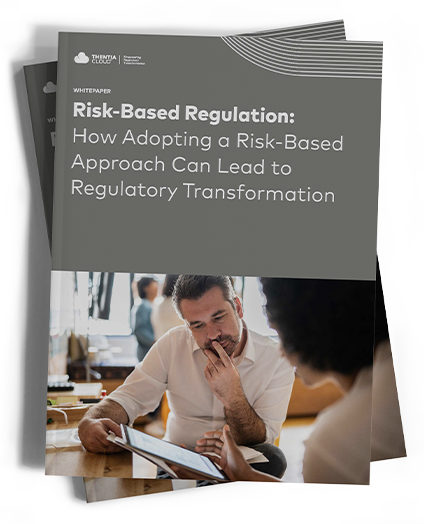The coronavirus pandemic’s impact has been felt in every area in which we live, work, and play, and the world of professional licensing is no different. And while certain gears of society will go back to some state of normalcy whenever the dust of this global upheaval settles, many other areas will be permanently changed. The remote work phenomenon, for instance, once marginalized to the comparatively few organizations open to accepting it, is now a widely accepted approach, at least in the knowledge economy where work-from-home is now the norm.
But what of the world of professional regulation? And as Harry Cayton, a leading authority on regulatory practices, noted in a recent blog post, if something as critical as patient safety could be maintained through the pandemic with modified requirements, “we must ask if the original requirements were necessary in the first place.”
Revisiting remote examinations
One area where many regulators have enacted modified requirements is found in the realm of examinations.
After the states of emergency were announced in the U.S. and Canada in early 2020, many regulators had to figure out how to manage professional licensing in this altered environment. Even when the economy is closed, professionals still need their licenses, and regulators need to stay operational. Legal proceedings, medical exams, and engineering projects didn’t all come to an immediate and sustained halt throughout the pandemic, and the need to license and re-license competent professionals didn’t disappear accordingly.
Licensure exams are a critical part of any candidate’s journey in the licensing process. Boards wield the authority of determining whether an examination meets the standards set by the licensing body and, most critically, whether it adequately protects the public’s health and safety by ensuring a candidate has the ability to handle their job competently. The same boards determine whether or not a candidate meets the minimum knowledge and experience requirements to do their job safely.
Traditionally, these exams are a mix of multiple-choice, written, oral, and practical components and have tended to take place at a physical location with proctors onsite. When the pandemic hit, most regulators put the brakes on exams, since convening within shared spaces simply wasn’t in the cards. But in time, adjustments were made, and many regulators responded by offering exams online as opposed to in person.
It was a decision that came easily to Greg Pope. As Director of Examinations at the Association of Professional Engineers and Geoscientists of Alberta (APEGA), he swiftly determined that canceling examinations would be too disruptive for the profession.
“It would have been harder to transition all applicants to remote proctoring if we had canceled our spring 2020 exam sessions,” he told Engineers Canada, explaining that moving to online exams “provided business continuity and gave us valuable time to resolve issues early.”
As a result of his leadership and success in this area, more than a dozen regulatory bodies started seeking Pope’s guidance as they sought to deploy remote exams and proctoring effectively. Many had not made successful pivots to online exams and some still hadn’t made the transition to online exams even a year after the pandemic had been proclaimed and was still a daily reality.
Remote proctoring yields benefits
Pope found a number of advantages in remote proctoring through the National Professional Practice Examination (NPPE), which 14 Canadian engineering and geoscience regulators rely upon to assess the professional capabilities of candidates within the profession. These included minimizing technical issues and virtually eliminating cheating. Applicants, too, found the approach more convenient and reported a higher level of satisfaction and sense of control.
In his piece, Cayton justly pondered why earlier requirements should be re-imposed if professionals have managed to work competently and safely under temporary arrangements, noting that regulators would have to assess the new balance of risk and come to a determination on the matter.
It’s too early to tell whether APEGA’s move to online examinations will stick. Right now, the NPPE continues to be administered online and due to ongoing public health restrictions, exams have been moved to remote proctoring until further notice.
But in the case of the Law Society of Ontario (LSO), online licensing examinations will be a reality for at least the next few years. In the spring of 2020, the LSO talked with contractors, licensees, and other stakeholders over a nine-week period before deciding to move examinations from a traditional pen-and-paper, in-person exercise to a remote, online delivery model. Over the course of the last eight months of the year, it successfully delivered 6,500 individual online paralegal and lawyer licensing examinations that would not have been possible through traditional means during the pandemic.
At its February 2021 directors meeting, the LSO approved a plan to continue providing online licensing exams until the conclusion of the 2023-24 licensing cycle. According to the organization’s Gazette publication, the move will ensure stability in the licensing process and “will allow the Law Society to thoroughly assess the effectiveness of the online delivery model.”
Elsewhere, results have varied. In the U.S., the National Conference of Bar Examiners (NCBE) deemed the remote exam process an overall success in October 2020 but acknowledged there were hiccups. In one case, a Pennsylvania examinee said he was forced to urinate in his seat while taking the exam because of a software security feature that prevented him from leaving his seat, according to Law.com. Other reported internet problems and software disruptions as additional factors affecting the remote examination experience negatively.
Will remote exams continue into the future, once the pandemic is a thing of the past? Right now, it is too early to tell, especially with the uncertainty surrounding the coronavirus Delta variant. But what’s clear is that, in spite of some challenges, licensors are able to successfully offer and administer remote examinations, when necessary.
Paul Leavoy is Content Director at Thentia and has been writing government and enterprise management technology, regulation, and public policy for over 15 years.












